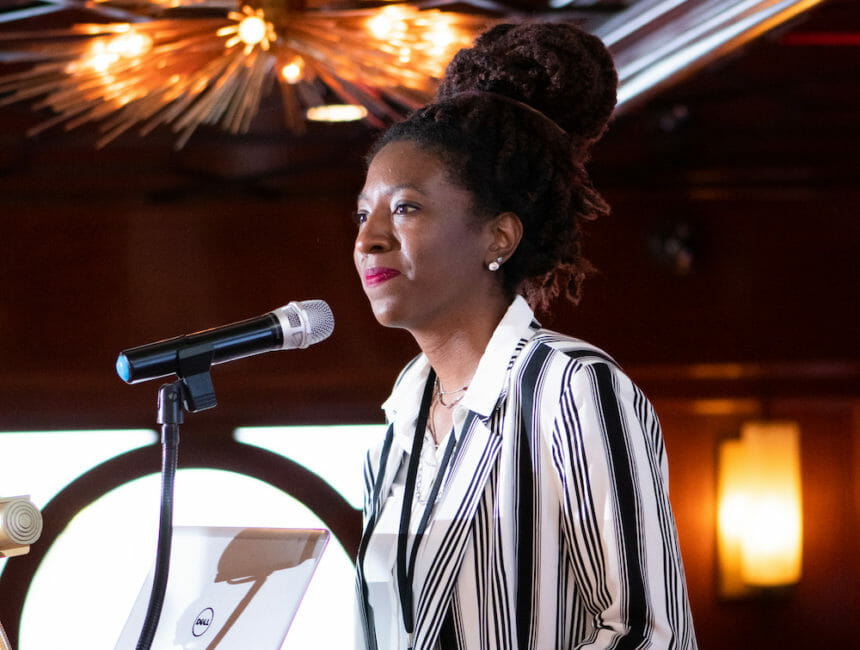March’s MM&M Plus One conference offered participants the opportunity to take part in roundtable discussions on topics related to diversity and inclusion in the medical marketing industry. The evening’s keynote speaker, author Bethanee Epifani Bryant, started the evening with a riveting performance of her prose poem “White Coats,” which described her experience with two doctors she felt weren’t listening to her because she is a black woman:
I sit on the examination table vulnerable, openly allowing him to dissect my body and
fix what had been broken
I tell him where it hurts
My words pass through him and do not take root
My concerns do not resonate
I realize he does not speak
my language.
“White Coats” was the foundation for Bryant’s larger message for the healthcare community: the importance of inclusivity and the need to be honest about “the sexism, racism, and prejudice we all have. Both doctors did their job accordingly, but neither one was truly seeing me, listening to me or understanding me,” she said. “And I know I’m not alone in my experiences. They are the experiences of people of color and those of the LGBTQ community that continuously go overlooked.”
Many minorities don’t seek professional care, she said, because of the anger and fear that come from being mistreated and ignored — “horror stories” that get passed down from one generation to the next. She shared a story about her mentally and physically disabled aunt, who’s looked after by Bryant’s mother. Without providing an X-ray or complete exam, her aunt’s doctor told her the lump on her breast required immediate surgery. Not satisfied with such a cursory assessment, Bryant’s mother sought a second opinion that fortunately revealed just fatty tissue.
“My mom was bold enough to look beyond his white coat to see a man who cared nothing for her sister, who cared nothing about providing proper and well-informed treatment,” Bryant said. “This is someone more interested in satisfying his own ego than caring for his patient.
“We understand this ignorance does not reflect everyone in the industry, but it reflects enough to the point that is a national concern. It reflects that people still receive unequal treatment depending on what they look like.”
To address widespread bias, Bryant said, efforts must be made to diversify healthcare. This step would bring people with new, relevant, lifesaving information to an industry that has a history of racism and sexism. “It’s about connection, and those in the industry need to be reminded of that,” she said, turning the conversation to the crucial role that marketers play. “You create, communicate and deliver health information and interventions to protect and promote the health of diverse populations. You serve as a bridge between the patient and the service you’re trying to promote.”
Bryant concluded by emphasizing that narrow-minded, selfish people have no place in healthcare. Instead, the industry should focus on “being of service” to its community. And she added that the motivation for people’s actions should be love. “Love is honest,” she said. “Let’s be honest about the sexism, racism and prejudice we all have. Let’s enter into these uncomfortable conversations that we often try to avoid. Let’s be honest that diversity is vital to progression and improvement.
“Love is also consistent. Let’s be consistent with the care we give across the board. A person is a human being no matter what they look like.”







